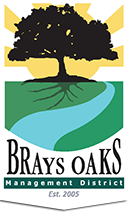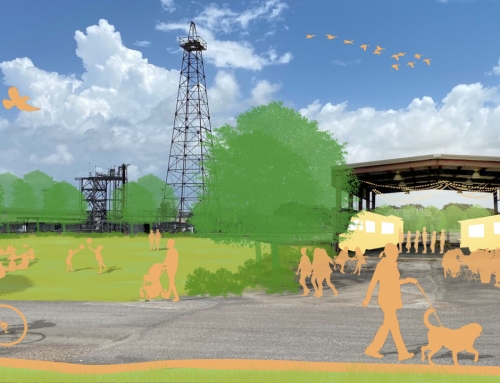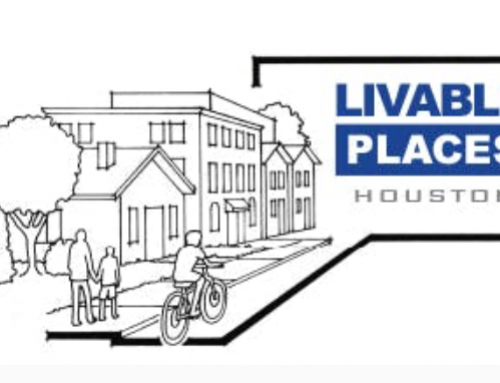Brays Oaks District is more than just streets, buildings, and businesses; individuals working together to build community is what makes it a great place to live. In our My Brays Oaks series, we highlight the people and organizations making a difference in the community, a place we’re proud to call home. Today we feature Daniella Lewis, the Farm Stand Program Manager at Plant It Forward, a nonprofit organization that helps refugees grow urban farm businesses to provide fresh, local produce for Houston.
Tell me about Plant It Forward and your work with refugees.
We help refugees who have agricultural backgrounds become urban farmers here in Houston. Currently, we have seven independent farmers growing for our brand. This October, we’re planning to start training a new class of prospective farmers, probably 20-24 from all around the world.
So the seven farmers actually manage the farms for Plant It Forward?
Our current master farmers went through the training program several years back [and now] they are farming independently on Plant It Forward land, fulfilling farm shares, farmers markets, farm stands and wholesale orders. We have seven individuals who are making a living off the farms; we actually had nine until just recently, but we have our first alumni: Albert Lombo and Adrien Ikaba. They started their own business called Houston Gardening Market, and they have their own farm out in Tomball now. So they’re our first successful trainees that really did go out and become independent.
Are there any other cities working on similar refugee farming programs?
There is a whole network of refugee farms between many different cities nationally. But we’re unique in that our program provides a full-time occupation and a livable wage. A lot of other programs are more focused on community building and supplemental income, which is wonderful, but we’re making this an economic program. And part of that is possible because we live in a climate that’s a year-round growing season.
Why did Plant It Forward choose Brays Oaks for two major farms?
We chose it because of the partnerships. Our Fondren location is in partnership with Braeswood Assembly of God. It’s a solid three acres of farming in the middle of the city. And Westbury is a beautiful location as well. It’s seven acres in the middle of the city, and it’s in partnership with [Westbury Community Garden], Westbury Civic Club, and I know Brays Oaks Management District is very hands-on with that effort. We have two acres of the seven there; the other five are the community garden.
Your Westbury farm recently acquired a high tunnel. Can you talk about that?
It was a big accomplishment, in partnership with the USDA National Resources Conservation Service and Minority Owner Magazine. [The latter] put together workshops around the country, and they chose us for the Houston/Gulf Coast region. So we did a public barn raising (or I suppose, a high tunnel raising). They increase production at a site without chemicals or anything harsh because they create a physical barrier against the weather and insects.
Will you be using it for special projects?
We’re going to use the high tunnel for starting transplants. Instead of outsourcing that to other local businesses, we’re going to take it in-house and produce seedlings more cheaply. So we’re really thankful that we have the high tunnel at our demonstration farm at Westbury.
What’s next for Plant It Forward?
We’re developing a curriculum [for the upcoming class of farmers] currently with Joe Novak, our agriculture expert, and we’re putting together topics on business skills and some cultural points. Our own master farmers are going to come back and teach some pieces of the curriculum as well. It’s going to be a neat cycle within the organization. Our slogan is “A farm in every neighborhood.” We want it to be very normal for there to be a local farm to get fresh produce in Houston.








